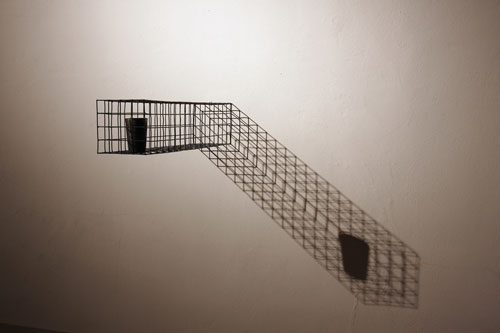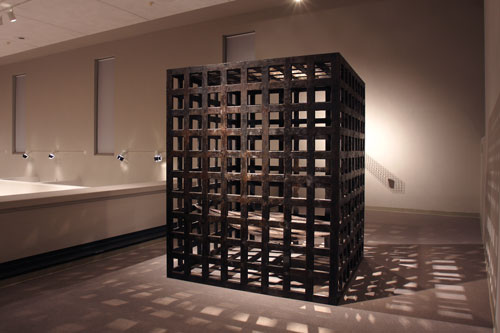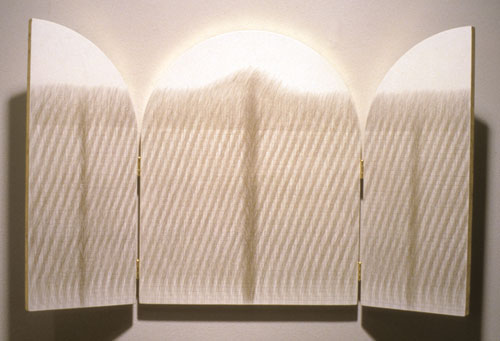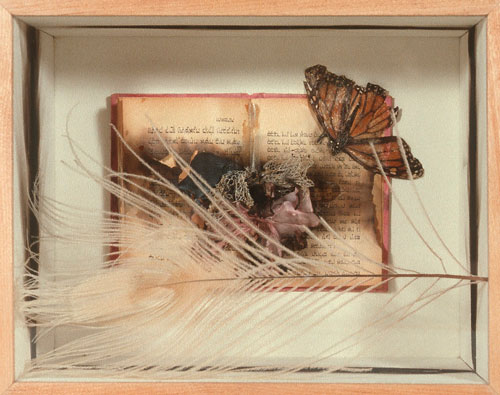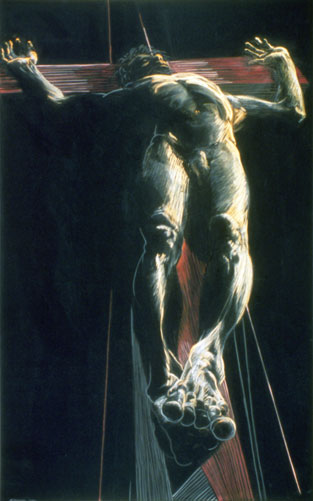Episode 15: MOCRA Memories - Sanctuaries
Release date: May 29, 2015
MOCRA has been shaped by many people and events over the years. “MOCRA Memories” episodes delve into particular moments in MOCRA’s history.
In 2013, MOCRA celebrated its twentieth anniversary, a perfect time to talk with people who have been affiliated with the museum over the years: those who had a hand in MOCRA’s genesis, artists who have participated in exhibitions at MOCRA, and other participants in the broader dialogue between contemporary art and religion and spirituality. In this episode we bring you conversations and reflections with people involved in MOCRA’s inaugural exhibition, “Sanctuaries: Recovering the Holy in Contemporary Art.”
MOCRA Voices on Stitcher MOCRA Voices on iTunes MOCRA Voices on Spotify
Related Exhibition
Sanctuaries: Recovering the Holy in Contemporary Art
Related Episodes
Episode 5: Pamela Ambrose and Ena Heller
Episode 10: MOCRA Memories - The Early Years
Episode 14: MOCRA Memories - Berkeley
Episode 17: MOCRA Memories - Consecrations
Episode 20: Pamela Ambrose
Pursuing the Spirit in Contemporary Art: A Celebration of Terrence Dempsey, S.J.
Credits
Producer: David Brinker
Recording Engineer and Editor: Mike Schrand
Host: Linda Kennedy
Theme and Incidental Music: Stephen James Neale
Listening Guide: David Brinker
Featured Guests and Listening Guide
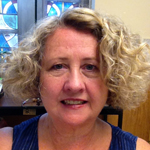
Cynthia Stollhans, Ph.D., joined the faculty of Saint Louis University in 1986 and has been teaching a variety of courses in Italian Renaissance and Ancient Art. In 2014 she published “Saint Catherine of Alexandria in Renaissance Roman Art: Case Studies in Patronage.” Stollhans’ current research is on courtesans and mistresses as art patrons in Renaissance Rome. An essay on the courtesan Fiammetta will appear in Katherine McIver and Cynthia Stollhans, “Patronage, Gender and the Arts in Early Modern Italy: Essays in Honor of Carolyn Valone” (2015).

A native of Chicago, sculptor Thomas Skomski has exhibited nationally in cities including Chicago, New York, San Francisco, Los Angeles, and St. Louis, and his international showings include the Grand Palais in Paris and the National Museum of Modern Art in Tokyo. He has taught at a number of institutions, including The School of the Art Institute of Chicago, Notre Dame University, and DePaul University. He has been the recipient of numerous grants and awards, including a commission for the Chicago Transit Authority’s Rockwell station, titled “Hidden Movers.”
Skomski infuses his work with his Buddhist understanding of life and describes his artistic process as an effort to use industrial materials to create works that reveal a deeper reality and the richness of mystery. His large sculpture titled Pietà, included as part of the MOCRA exhibition “Post-Minimalism and the Spiritual: Four Chicago Artists”, has been a prominent presence in MOCRA’s balcony gallery since 1994.
| 06:55 |
Pamela Ambrose was involved with the New Museum of Contemporary Art in New York in its formative years in the 1980s, implementing special events and collector’s programs. She also served as director of two prominent New York galleries: the Monique Knowlton Gallery and the Rosa Esman Gallery. Ambrose was the Executive Director of Samuel Cupples House at Saint Louis University from 1996 to 2004. She served from 2005 to 2016 as Director of Cultural Affairs at Loyola University in Chicago and the Founding Director of the Loyola University Museum of Art (LUMA). MOCRA Voices, Episode 5 features Ambrose and former Museum of Biblical Art Director Ena Heller, and Episode 20 features a conversation with Ambrose on the occasion of her retirement. A talk by Ambrose is part of the 2009 MOCRA panel discussion, “Art and the Religious Imagination.” |
|||||
| 07:25 |
As a subject in art, Pietà refers to a (most often sculptural) depiction of the Virgin Mary cradling the dead body of Jesus. Learn about artist Piet Mondrian (1872–1944). |
|||||
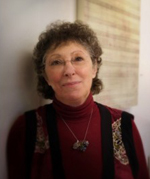
Susan Schwalb, an artist based in Boston and New York, has played a leading role in the American revival of the ancient technique of silverpoint drawing. With over thirty-five solo exhibitions nationally and internationally, her work is represented in such prestigious collections as the Museum of Modern Art, New York; The Metropolitan Museum of Art, New York; the National Gallery of Art, Washington DC; The British Museum, London; Victoria and Albert Museum, London; and the Ashmolean Museum, Oxford, England.
Her drawings juxtapose a wide variety of metals (silver, gold, brass, copper, platinum, pewter, bronze and aluminum) to obtain soft shifts in tone and color. Horizontal bands evoke an atmosphere of serenity, and the shimmer of light on the surface, created by the metals, is quite unlike any of the usual effects of metalpoint. Several of her works were included in MOCRA’s inaugural exhibition, “Sanctuaries: Recovering the Holy in Contemporary Art”, and are found in MOCRA’s collection.
| 16:10 | ||||||
| 20:05 |
Learn about artist Joseph Cornell (1903–1972). |
|||||
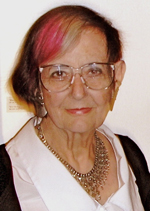
Eleanor Dickinson (1931–2017) was an outstanding figural artist, whose work has been exhibited nationally and internationally, and is found in collections including the San Francisco Museum of Modern Art (SFMOMA), The National Museum of American Art, The Corcoran Gallery of Art, The Library of Congress, The Oakland Museum, and MOCRA. Among the honors she received was a 2003 “Lifetime Achievement Award” award from the National Women’s Caucus for Art. Dickinson was Professor Emerita at the California College of the Arts.
Dickinson’s subject is the human form in all of its strength, joy, and vulnerability, which she renders in a dramatic style reminiscent of Italian Baroque artist Caravaggio. Some of her most evocative work are images of contemporary people from all walks of life posed in the form of the crucifixion. A number of these works, rendered with colored pastel on black velvet, were exhibited in MOCRA’s inaugural exhibition, “Sanctuaries: Recovering the Holy in Contemporary Art”, as well as in a retrospective solo exhibition at MOCRA in 1995. Art historian Peter Selz wrote in Art in America, “In these poignant, self-contained images, Dickinson has managed to universalize individual distress and hope: in Wittgenstein’s words, ‘the human body is the best image of the human soul.‘”
| 26:30 | ||||||
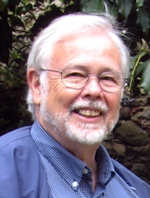
Wilson Yates is President Emeritus of United Theological Seminary of the Twin Cities and founding Editor of the journal ARTS (The Arts in Religious and Theological Studies). Yates is one of the key educational figures in the dialogue between the arts and the religious dimension. He is the author of “Arts in Theological Education: New Possibilities for Integration,” co-editor of “Theological Reflections on the Grotesque in Art and Religion” and “The Arts, Theology and the Church,” and author of numerous articles on the dialogue between art and religion.
